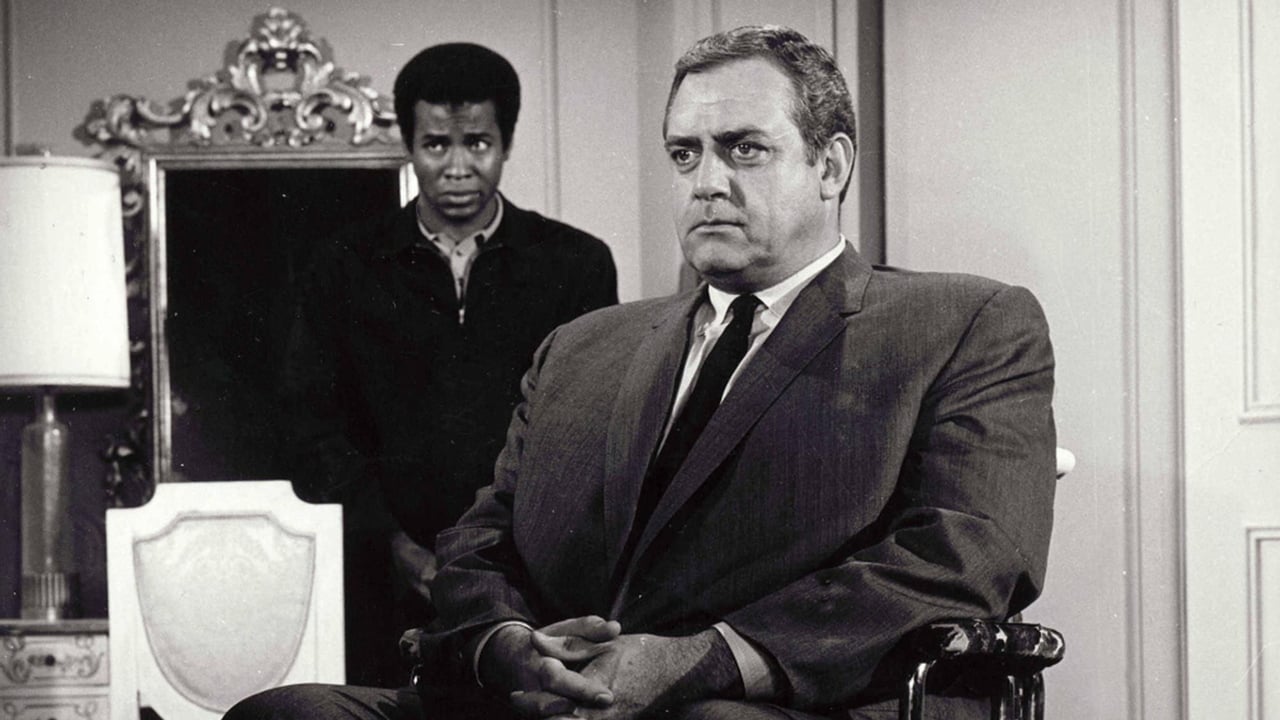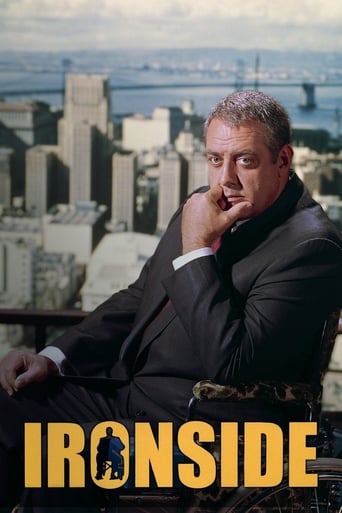Titreenp
SERIOUSLY. This is what the crap Hollywood still puts out?
Tacticalin
An absolute waste of money
TrueHello
Fun premise, good actors, bad writing. This film seemed to have potential at the beginning but it quickly devolves into a trite action film. Ultimately it's very boring.
DipitySkillful
an ambitious but ultimately ineffective debut endeavor.
philharve
There have been three Halls of Justice buildings in San Francisco's history and the building that appears in every episode of Ironside, which ran from 1967 to 1975, was the 'second' Hall of Justice and it is often referred to as the 'Old' Hall of Justice. It contained the city's jail, police station, courtrooms, and District Attorneys Office. Its address was 750 Kearny Street, which placed it on the east side of Kearny between Washington and Merchant.The 'original' and 'first' Hall of Justice stood on the same spot but was destroyed in the great San Francisco earthquake on 18th April 1906 during which it burnt to the ground. The original building bore a passing resemblance to its successor except for the addition of a tall clock tower that overlooked Kearny Street.The Old Hall of Justice was first occupied in 1912 but by 1950 it had outgrown the purpose for which it was built. A 'third' larger Hall of Justice was built about 11/2 miles distant on a new site at 850 Bryant Street, between 7th and Harriet.The Old Hall of Justice was finally abandoned in 1961 and was subsequently gutted of its luxurious fixtures and fittings, comprising wood and marble panelling, brass door knobs and hinges, carpets, furniture and other decorative features. It was finally demolished in 1967 after standing derelict.Stock footage of the derelict building was used to highlight the location of Ironside's office, which was on the top floor, left hand side, as viewed from the front of the building. A row of semi-circular windows adorned the top floor offices. Ironside's office, which also doubled as his apartment complete with semi-circular window, was recreated in the studio for the filming of the series.Also seen in the same stock footage is the Coit Tower on Telegraph Hill, which is located a short distance to the north of Portsmouth Square. Portsmouth Square, which is located on Kearny between Washington and Clay, was once the centre of 'old' San Francisco and is now part of the Chinatown district of the city.Looking eastward from Portsmouth Square prior to 1967, the frontal view of the Old Hall of Justice would have been instantly familiar to Ironside fans. Its sides and rear aspects were never filmed, presumably because they were far less attractive.Midway along the front of the Old Hall of Justice was a street-level entrance to an underground car park. It was through this narrow entrance that Ironside's personal transporter, a grey-painted, blue-striped, supercharged police van, originally painted black, was occasionally seen to use. His subsequent transport, a sand-coloured Ford van, which was introduced into the series after the police van was destroyed in one episode, is never seen near the Old Hall of Justice because the building had been demolished and a new building was in the course of erection.Today, the site is occupied by the 27-floor, Hilton San Francisco Financial District Hotel and the Chinese Cultural Centre, which share the same address. Behind the Hilton Hotel on Montgomery Street stands the famous Transamerica Pyramid, another of San Francisco's noteworthy landmark buildings.There are ongoing arguments concerning the wisdom of demolishing a building such as the Old Hall of Justice and replacing it with a modern skyscraper structure. Many of San Francisco's inhabitants regard the design and appearance of the Old Hall of Justice as having more character and beauty than the edifices that replaced it.
bkoganbing
I mentioned this before on a review of a third series that Raymond Burr had after Perry Mason and Ironside, that most actors are lucky to have one successful series let alone two of them back to back. Burr did it with two very different kinds of characters.Perry Mason was cool and calculating until he sprung a trap in court that nailed the real murderer and/or the helpless prosecutor be it Hamilton Burger or someone else. But Robert Ironside had already faced his life crisis when that bullet severed his spinal cord. With that kind of baptism of fire nothing ever fazed the Chief. He was hostage a couple of times during the course of the show and he faced some unusual life threatening situations that were more stressful because of his paralysis, but he always kept a cool head.I loved the position he was in as the head of that special squad. He had a picked team in Don Galloway, Barbara Anderson, and Don Mitchell. He worked only the most important cases or something that interested him. I worked for NYS Crime Victims Board and believe me I always looked for interesting cases where people filed claims. So much is dull and routine. Burr had the dull and routine out of his life.Barbara Anderson did not go the full run of the series, but Elizabeth Baur came in and moved seamlessly into the team Ironside.Beneath all the gruffness and the demands on his people that work be finished yesterday, the Chief had a good heart and was an inspiration to all around him. I suspect to many viewers as well.
kidboots
I have read that Raymond Burr was so fed up by the end of the Perry Mason series, he had no idea the show was destined to take up 9 years of his professional life. Before that he had played some of the nastiest villains on film ("The Whip Hand", "Rear Window" etc) so he must have jumped for joy when given the opportunity to portray one of the straightest lawyers in history - Perry Mason!!! Nine years later he was offered another police series - "Ironside" but this cop was different. As the pilot showed he was gunned down by an unknown assailant and forced to come to terms with life in a wheelchair - his abrasive, forthright and refreshing "politically incorrect" manner shows that the number of suspects will be limitless (the crime is solved within the pilot). Along the way he picks up ambitious young officer Ed Brown (Don Galloway) and private school educated Eve Whitfield who Ironside thinks has the makings of a fine police woman. As well he enlists the help of a young black juvenile offender, Mark Sanger, to look after him - their confrontations are some of the highlights of the show.With a pulsating theme by Quincey Jones (his first major series), the different episodes took viewers through such diverse issues as civil rights, the world of drugs, hippies, extreme vigilante groups etc. The pilot took Ironside into the existential world of art and beatniks - Tiny Tim (remember him!!) was even featured. One of my favourite episodes, "The Man Who Believed", was about Ironside's fight for justice when a young singer is presumed to have died from an overdose - he believes and proves it was murder!! There were old time actors like Gene Raymond in the very timely "Force of Arms" - he played the head of a nationwide vigilante group who are tirelessly collecting dossiers on United States citizens. Another one was "The Past is Prologue" with a young Harrison Ford whose father has been on the run from a murder charge for the past 19 years.I found the episodes that were not so great were the ones that gave Don Galloway the occasional lead - "wooden acting" was a term invented for that guy. Another minus - Ironside seemed to have a few quirky mannerisms that were eased out as the series took hold. Especially his catch phrase "Flaming" this and "Flaming" that - even his offsiders started to say it (although not with the same ease and glibness) but after a few episodes it was gone. I always thought it was a pity.
Cue-ball
There are precious few actors who can create two successful television characters. More recent examples include Mary Tyler Moore (Mary Richards and Laura Petrie) and Bob Newhart (Bob Hartley and Dick Loudon). In 1966, Burr completed a nine-year run as the most recognizable attorney on television. In 1967, returning to television, his challenge was to create a new character that wouldn't stand in Perry Mason's shadow. The result was Ironside -- a rough, former chief of the San Francisco police forced to retire when an attempted assassination leaves him paralyzed. (The theme music is reprised in "Kill Bill Vol. 1", whenever the Bride flashes back on her paralyzing injuries.) Bob Ironside had none of Perry Mason's polish, frequently spoke without thinking, and enjoyed fast cars as much as he relished good police work. He was given a special task force that included a regular joe beat-cop, Ed Brown (even in the sixties, a more vanilla name was never given a character); a highbrow, educated female detective (Eve Whitfield); and a troubled black youth, Mark Sanger, who was to Ironside what Charlie Young is to President Bartlet on "The West Wing". Instead of the Los Angeles setting of Perry Mason, Ironside was in San Francisco. In addition, while Perry Mason kept the lights on at CBS for nearly a decade, Ironside was a steady performer for NBC for almost as long. The show was an instant critical and commercial success.I think the reason Ironside is not as popular in reruns now as it was in the late 70s and early 80s is it will always be in the shadow of Mason, and that's a shame. The two shows are not the same, and there are many memorable episodes of Ironside. One in particular features Ironside isolated in his apartment, being stalked by a killer, that always reminded me of the climactic scene in "Rear Window" -- in which the killer was played by Raymond Burr! One of my favorite lines of dialogue, from the pilot, was his ribbing of his female detective: "By all means, ask Detective Whitfield. She's had the benefit of a classical education." That line -- which would never have passed Perry Mason's lips -- is a good sample of Ironside's tone through the series.

